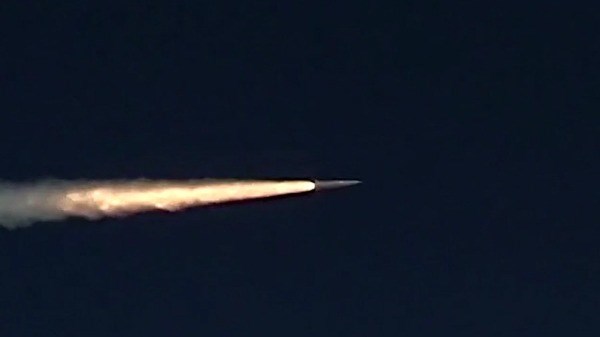Poland considers intercepting Russian missiles over Ukraine
Warsaw is deliberating the use of its air defence systems to intercept Russian missiles over Ukraine. Yet, no official decisions have been made on the matter, said Polish Foreign Ministry spokesperson Paweł Wroński.
"This issue is being analysed from legal and technical perspectives, but no decisions have been reached yet," Wroński stated.
Wroński mentioned that the initiative came from the Ukrainian side. Warsaw is assessing the matter with international law experts and technical specialists to weigh all risks and understand the potential consequences fully. Experts will need to agree on the conditions under which Polish air defence could be deployed to counter threats over Ukraine.
The Foreign Ministry spokesperson also emphasized that Poland is not considering transferring its air defence systems to Ukraine.
Wroński highlighted that the issue became more pressing after a Russian missile entered Polish airspace for 39 seconds on 24 March. The Polish Foreign Ministry summoned Russian Ambassador Sergey Andreev to discuss the incident. However, the ambassador declined the invitation.
According to Ukrainian diplomat and expert from the Center for Defence Strategies Oleksandr Khara, Poland faces no legal barriers to using its air defence systems against Russian missiles over Ukraine. However, Warsaw will need to consider Washington's stance on the issue.
"Given that Poland is a NATO member, and the Biden Administration, at the onset of Russia's full-scale invasion, established a strategic framework whereby the Alliance would not partake in the war, there is both a political and legal component here. Warsaw could help us intercept missiles — and there is no international agreement or precedent that suggests that such actions could be considered an act of aggression against the country that launched the missile. A notable case is when the US and its allies used their air defence systems to protect Israel, which reaffirmed that such measures are not seen as entering into a war. Thus, I see no real barriers except for Washington's strategic calculations," Khara told Focus.
At the beginning of the full-scale invasion, Ukrainian authorities repeatedly requested Western leaders to enforce a no-fly zone over Ukraine. However, Western nations asserted that such a move could drag the Alliance into a conflict with Russia. Nonetheless, the topic of protecting Ukrainian skies has resurfaced after the USA, the UK, France, and Jordan repelled an Iranian attack on Israel in April 2024. [Source](https://focus.ua/voennye-novosti/640435-terror-dolzhen-proigryvat-ukrainu-nado-zashchitit-tak-zhe-kak-izrail-zelenskiy-video)
Ukrainian President Volodymyr Zelensky pointed out that although Israel is not a NATO member and, therefore, does not qualify for protection under Article 5 of the Alliance, the allies were able to fend off Iran's attack without being drawn into a war.
"European skies could have already received the same level of protection, which is necessary if Ukraine had similar comprehensive support from its partners in repelling drones and missiles. Terror must be defeated entirely and everywhere, not only in some places," Zelensky emphasized.
Experts believe that Polish air defence systems could intercept Russian missiles over Lviv Region, a conduit for Western military supplies to Ukraine. Furthermore, Poland’s decision could influence other EU countries bordering Ukraine to activate their air defence for protection near borders.
"Poland could aid Ukraine in safeguarding a section of the skies. And it’s crucial for us that such a decision would be collective. In this way, Romania could also assist in protecting southern Ukraine. Alongside Bulgaria and other countries, the question remains how far over our territory they can extend such a shield," Khara surmised.
Technically, Polish air defence systems, Khara noted, could shoot down missiles over western Ukraine, allowing Kyiv to deploy Western air defence systems to other cities.
"We have a vast territory, and defending it is a daunting task. Air defence systems and missiles cost millions of dollars. This remains a significant issue for our partners," Khara concluded.
